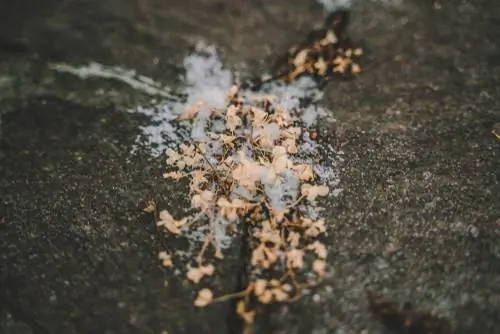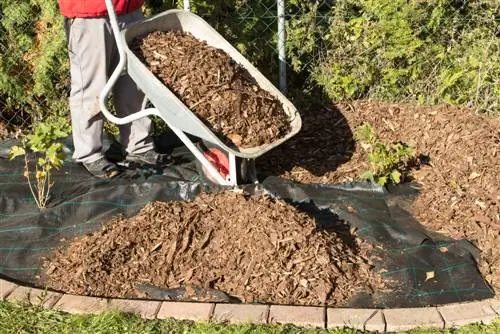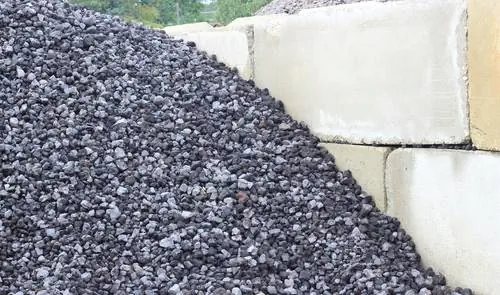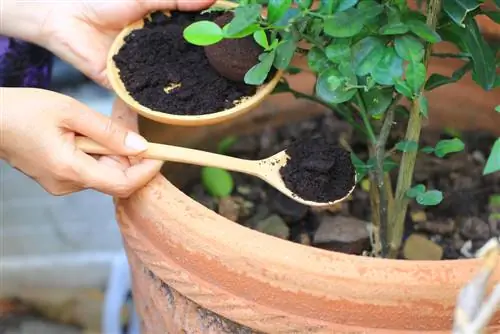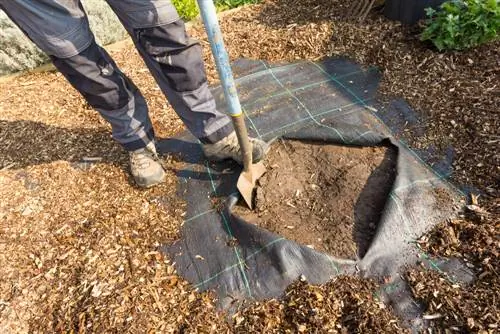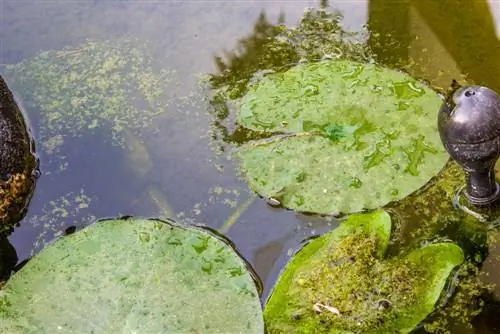- Author admin leonars@hobbygardeners.com.
- Public 2023-12-16 16:46.
- Last modified 2025-01-23 11:21.
Some hobby gardeners combat annoying weeds with road s alt. Although this method is quite effective, it is not without controversy. You can find out what you need to pay attention to when applying it and whether it is legal to use the product as a weed killer in the following article.
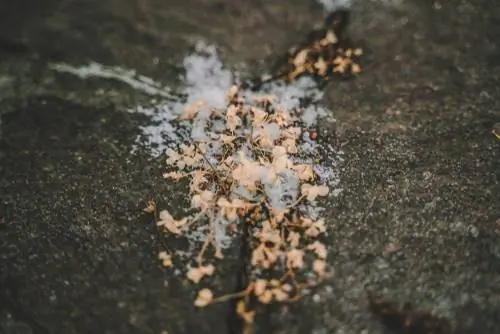
Is road s alt against weeds effective and legal?
Road s alt can kill weeds through cell damage, but is harmful to the environment and not permitted under the Plant Protection Act. Alternatives include hot water, mechanical removal or flaming, and weed-inhibiting joint sand or rock dust.
How does road s alt affect weeds and the environment?
Sprinkling s alt consists of 98 percent table s alt, which penetrates into the soil and initially damages bacteria and microorganisms. As a result, the soil becomes muddy and becomes nutrient-poor. The dissolved s alt is absorbed by the roots and penetrates the plant, where it destroys the cells. Brown edges of the leaves appear and the shoots wither. If plants absorb large amounts of s alt, they will die.
If you look at the trees on busy roads after a long winter, it quickly becomes clear that the agent used to combat black ice has a very negative effect on growth. This not only affects unwanted weeds, but also cultivated plants.
How is road s alt used as a weed killer?
Due to the far-reaching consequences for the environment already described, the use of road s alt as a weed killer is not without controversy. If you still want to use this remedy for individual, very stubborn weeds, you should proceed as follows:
- Dissolve 100 grams of road s alt in one liter of water.
- Wet the weed plant thoroughly.
The dissolved s alt that has penetrated the soil is absorbed by the plants. As a result, the above-ground parts of the plant wither and you can easily remove the weeds.
Attention: Road s alt is not a permitted weed killer
Section 6 of the Plant Protection Act regulates which herbicides may be used. The following applies to house and garden owners: The use of plant protection products is prohibited in all open spaces that are not used for gardening. This includes, among other things, the terrace, the courtyard entrance and all paths around the building. But it's not just weed killers that are banned here; even supposedly harmless household remedies such as road s alt or vinegar are not allowed to be used in these areas for the purpose of killing weeds.
What alternatives to road s alt are there?
Hot water, which destroys the roots of the plant and the above-ground parts of the plant, is completely harmless to the soil and nature. For example, you can use the potato water that is already produced in the kitchen and pour it directly onto the weeds. The weeds die and can then be easily removed.
If you want to get rid of weeds that have grown into the cracks in the paving slabs, you can remove them mechanically with the joint scraper. However, this can be quite tedious for larger areas. Here it has proven useful to burn off the unwanted green with a special device. The heat causes such lasting damage to the plants that the paths remain weed-free for a long time.
Tip
To prevent weeds from settling in the joints of the paving slabs, you should add weed-inhibiting joint sand or rock dust to them. These materials fill even the smallest cavities and compact so strongly that weeds are deprived of their livelihood.

